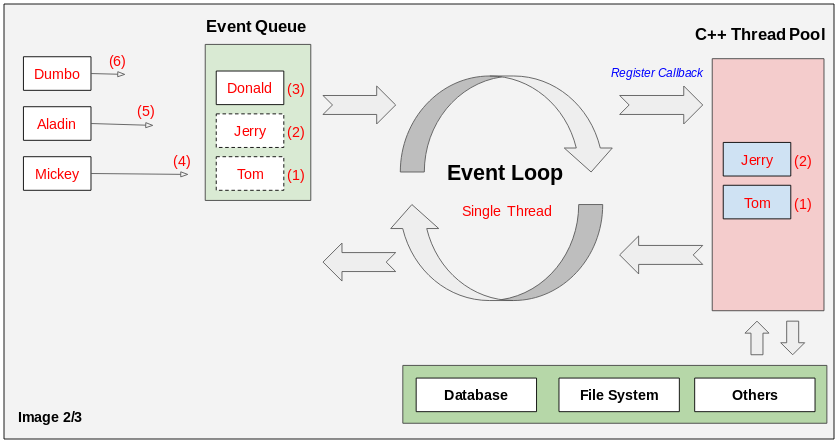

Use a getTime synchronous method to log the exact words 'We', 'are', 'learning', and 'JavaScript' with a 2-second interval after logging the word 'We'. Try experimenting with a delayedGreeting method to separate the words: 'We', 'are', 'learning', and 'JavaScript' with a 2-second interval: If you follow this logic, the code sample looks like this: function sleep( ms), 7000) That's why you should include the async and delayedGreeting parameters to separate these three words by a 5-second interval. If you'd like to omit an asynchronous output, it could be a great way to use the async await approach. sleep 1 seconde nodejs time sleep nodejs snodejs sleep script sleep javascript node node js program run while computer sleep add a sleep in node nodejs sleep 1 second sleep code node js how to sleep node js inside loop sleep inside loop node js nodejs sleep before function how to put sleep timer in node js npm sleep node js javascript add sleep. That's why this approach might not be the most suitable for putting a specific log into sleep. Thus, the output you get will first input Learning and Script, then include Java in a 5-second timeout.


When you create a delay this way, the commands work asynchronously. Output: // Learning // Script // * 5 seconds * // Java However, it's not that easy to replace one method with another and expect no downsides. This behavior will be replicated with no issues when run through a compiler. We first log the word "Java", use a setTimeout command to specify a 5-second timeout, and then attempt to log "Script". Output: // Java // * 5 seconds * // Script Let's start with a basic way to emulate sleep in JavaScript by using a setTimeout method. Instead, you have to open a compiler on your own and see how the alternatives to sleep() behave in their natural environment. Unlike our other tutorials, this guide won't show the outputs in the console. Still, JavaScript is a flexible language, offering a few alternatives. JavaScript has no dedicated sleep() function. The sleep() function is present in PHP, C, Java, and GO, and it is used to pause the execution of code for a particular amount of time. Operators: Addition assignment operator (+=).export const sleep = (ms: number) => )Ĭonsole.error("Account refresh timed out, recalc aborted")

Yields asynchronously and performs a test on the completion condition at regular intervals till true or timeout. This method is sort of similar to a while (!condition) sleep loop, but When working with async functions or observables provided by 3rd party libraries, for example Cloud firestore, I've found functions the waitFor method shown below (TypeScript, but you get the idea.) to be helpful when you need to wait on some process to complete, but you don't want to have to embed callbacks within callbacks within callbacks nor risk an infinite loop.


 0 kommentar(er)
0 kommentar(er)
